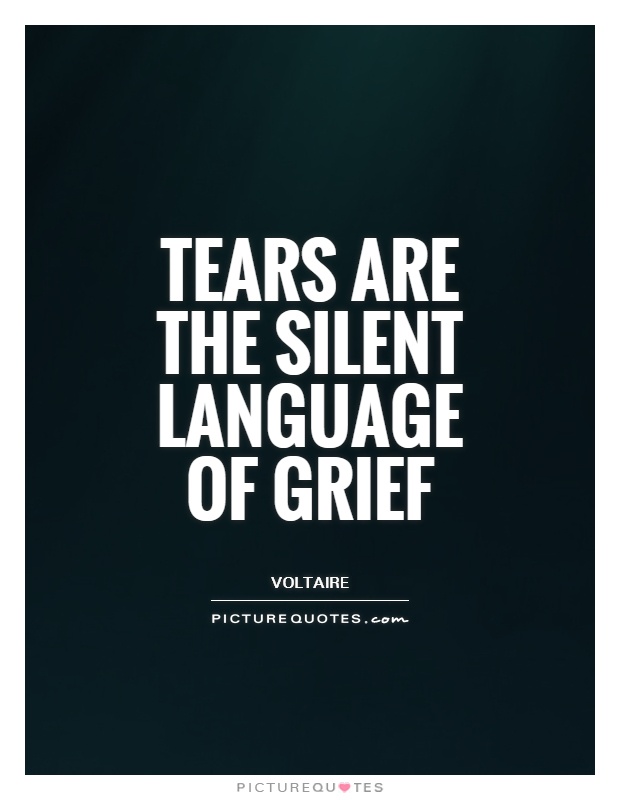Tears are the silent language of grief

Tears are the silent language of grief
In the context of Voltaire, the quote "Tears are the silent language of grief" holds a profound significance. Voltaire, a French Enlightenment writer and philosopher, was known for his sharp wit, satire, and criticism of the societal norms of his time. He often used his works to challenge the prevailing beliefs and practices of the society he lived in, advocating for reason, tolerance, and freedom of thought.In many of Voltaire's works, we see the theme of grief and suffering being explored in various forms. Whether it is through the tragic events that befall his characters or the philosophical musings on the nature of human existence, Voltaire delves deep into the human experience of pain and loss. And in these moments of sorrow, tears become the silent language through which grief is expressed.
Tears, as Voltaire suggests, are a universal form of communication that transcends language barriers and cultural differences. They are a physical manifestation of the emotional turmoil that one experiences in times of distress. When words fail to convey the depth of one's sorrow, tears step in to fill the void, speaking volumes without uttering a single sound.
In Voltaire's works, we see characters grappling with grief in various ways. From the heart-wrenching loss of loved ones to the existential despair of facing the harsh realities of life, his characters often find solace in tears. Through their tears, they express their pain, their anguish, and their longing for a better world.
But tears are not just a symbol of grief in Voltaire's works; they also serve as a catalyst for change and growth. In shedding tears, his characters find a release from their pent-up emotions, allowing them to heal and move forward. Through their tears, they find the strength to confront their fears, face their demons, and ultimately, find redemption.












 Friendship Quotes
Friendship Quotes Love Quotes
Love Quotes Life Quotes
Life Quotes Funny Quotes
Funny Quotes Motivational Quotes
Motivational Quotes Inspirational Quotes
Inspirational Quotes